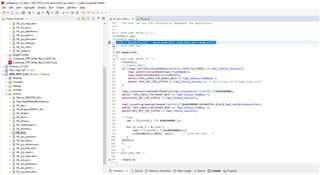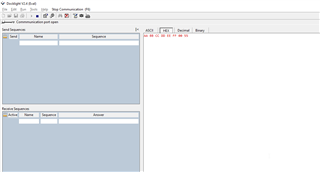Other Parts Discussed in Thread: UNIFLASH
Hi Team,
There's an issue from the customer need your help:
I erase and write the on-chip Flash through F021 API
After I erased Bank1, I wrote 0xaa to the first 8 bytes of Sector0 of Bank1. Then read these 8 bytes directly in the C program through the address.
According to the printed information of the serial port, there are no software errors in erasing and writing. However, when the first byte of data is read, the serial port will stop and the red light on the board will light up.
At this time, the memory information is read through the Memory option in UniFlash, and it is found that the first 8 bytes of Sector0 of Bank1 have been written as 0xaa.
Then I tried to write the starting 16 bytes, 24 bytes, and 32 bytes of Sector0 of Bank1. I found that when writing the first 24 bytes and 32 bytes, the data I wrote can be read without errors.
I would like to ask what may be the cause of this situation? How to solve it?
According to the technical manual and API manual, it seems that writing only 8 bytes, and reading these 8 bytes is feasible
Thanks & Regards,
Ben




